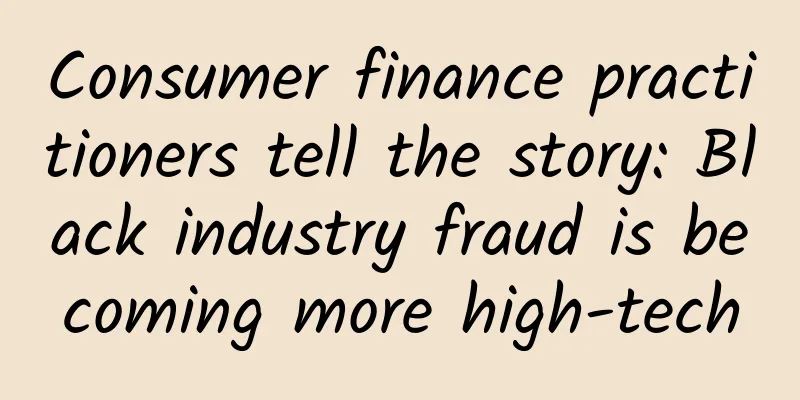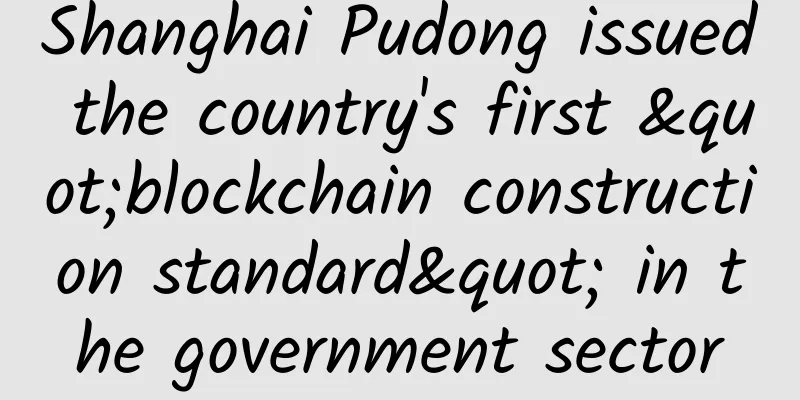Consumer finance practitioners tell the story: Black industry fraud is becoming more high-tech

|
Chinese consumer finance practitioners said that the biggest risk they face in the entire business chain comes from "black industry" - organized criminals try to illegally seize lenders' funds through fraud. In the severe offensive and defensive battle, consumer credit companies that serve secondary customers are more likely to be targeted by black industries than banks. The reason is simple: private consumer credit companies that provide small and micro financial services cannot directly push out users that banks are unwilling or unable to serve. They do business with these people - while they bring them profits, they may also bring higher risks. Lexin is one of these consumer finance companies, which offers installment purchase services for goods and education products to college students and young white-collar workers, as well as blue-collar workers, through its two platforms, Fenqi Le and Tiqian Le. They are usually unable to borrow money from banks due to lack of credit history or poor credit history. Xiao Wenjie, founder and CEO of Lexin, told Tencent Finance that the company he led, which was one of the earliest to provide consumer financial services to Chinese users, had encountered a "very sophisticated" fraud: sophisticated identity theft and credit fraud in the name of others. Xiao is the founder and CEO of Lexin. Xiao Wenjie accepted an exclusive interview with Tencent Finance while attending the 2017 Boao Forum for Asia Annual Conference. Xiao Wenjie said that practitioners in the illegal industry often trick customers into providing identity information and opening bank accounts and mobile communication accounts in the name of providing job opportunities - these are all necessary information that users of consumer finance platforms need to provide to obtain services. Usually, black market operators will also obtain users' full information in the name of entrusting a third party to conduct background checks. "Whatever he asks you, you should answer truthfully." Since background checks are usually one of the necessary steps to join a new company, customers who are kept in the dark are often unaware of the situation and are very cooperative. When consumer loan companies conduct phone verification for loan applicants who have submitted a full set of information online, the users usually "will say 'yes' and answer all the questions well." The result is that "the scammers get the money and run away." In addition to these routines, the black industry's fraud methods are becoming more high-tech and intensive: for example, black industry practitioners have applied for hundreds or thousands of mobile phone cards, "using special number-keeping tools to keep them there" - recharging them according to the minimum consumption every month to ensure that the mobile phone cards are active online, making it easier for them to carry out fraud on various consumer finance or micro-loan platforms. In addition, Xiao Wenjie also cited media reports that some black industry practitioners "drive buses to rural areas to collect ID cards" for fraud. Since many rural users - commonly known as "white households" - have no loan or credit records, it is easier for them to succeed in loan fraud. Xiao Wenjie said that black industry practitioners "use ID cards in batches to apply for loans on various platforms. Some platforms even lose tens of millions a day. This is normal." To deal with black industry fraud, this consumer finance platform has established a data system called "Eagle Eye" to analyze the consumption habits of users and establish a risk control rule library to prevent risks. For example, one of the many rules is that using the same mobile phone to log in to different accounts to place orders "may be a typical risk." In the early years, when mobile Internet business was booming, the focus of the black industry was usually on the large user subsidies given by "money-burning" companies such as Didi and Meituan. "But after the emergence of Internet finance, it was like hitting a gold mine and finding that more money could be defrauded." Xiao Wenjie said that one of the biggest risks of working in finance is that financial business itself is risky. "You want to earn interest from others, while others want to earn your principal." The devil is always one step taller than the saint, and the war of offense and defense in the field of consumer finance over loan fraud continues. |
<<: Who is responsible for the rampant online black industry?
>>: What will be the future of the Internet after the heyday?
Recommend
ExtraVM: Los Angeles 10Gbps bandwidth AMD Ryzen series high-defense VPS starting at $3.5 per month
It has been nearly three years since the last tim...
DiyVM: Hong Kong/Japan/Los Angeles data center CN2 line VPS monthly payment starts from 50 yuan
You may think that the price starting from 50 yua...
Three major operators rush to climb Mount Everest to support 5G
Good news comes from Mount Everest one after anot...
In the 5G era, what kind of data center do operators need?
The evolution of mobile communication networks is...
VMISS 30% off: Los Angeles/Japan/Hong Kong VPS monthly payment starts from 3.5 Canadian dollars (≈ RMB 18 yuan)
VMISS is a new merchant founded in Canada. It cur...
AkkoCloud: San Jose CN2 GIA/Germany CN2 GIA, starting at 299 yuan per year, 300-500Mbps bandwidth
AkkoCloud is a Chinese hosting company founded in...
Three Phases of Monitoring on the Path to Observability
It’s now widely accepted that monitoring is only ...
DNS communication protocol based on privacy protection technology
The Domain Name System (DNS) is an Internet basic...
What should you consider before looking for an SD-WAN provider?
SD-WAN supports use cases across a variety of ver...
How will the next generation of Wi-Fi change the smart home?
Strategy Analytics predicts that the number of Wi...
TCP
[[381851]] This article is reprinted from the WeC...
What else to look forward to in the communications industry in 2021?
[[373658]] This article is reprinted from the WeC...
Currently, CDN security is far from enough
Today, many businesses realize that DDoS defense ...
Technology trends 2024: The impact of AI, 5G, IoT and blockchain
As 2024 begins, many technology trends are taking...
Sharktech 20th Anniversary Cloud Server 20% off, Netherlands/Denver/Los Angeles High Defense Private Cloud/Public Cloud Server
Sharktech is currently carrying out a 20th annive...









